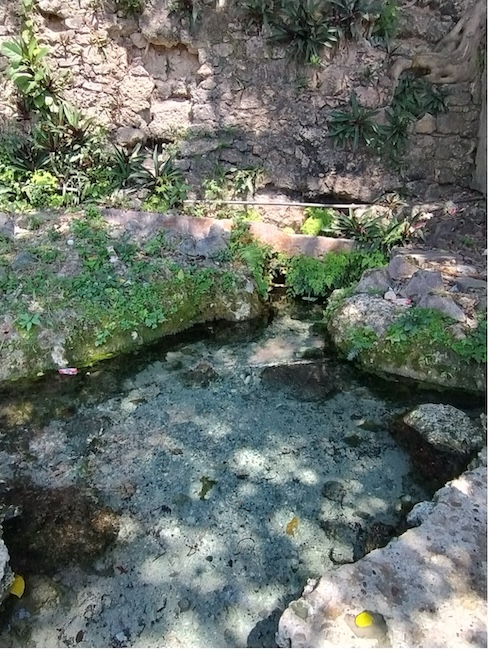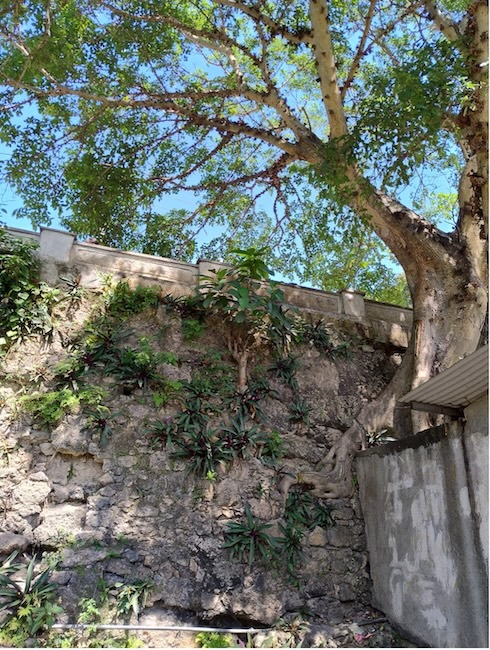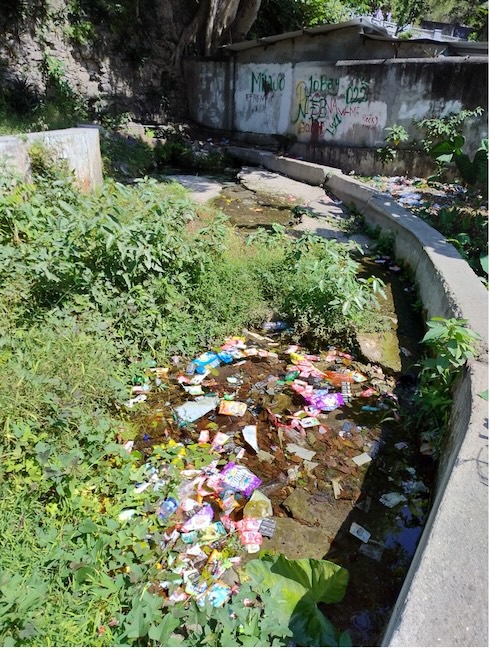The Boy From the East
In 1979, Jose da Costa was three years old when he was captured by the Indonesian army together with his family up in the mountains where - like hundreds of thousands of other Timorese - they were displaced after the Indonesian invasion in 1975. The family were captured by the Indonesian army and returned to their home district, Baucau, where they were respected community leaders. The army imposed home detention on captured men until their relatives came down from the mountains.
Baucau is famous for its plentiful water resources, thanks to a complex of springs in the area. The most important is the Wailia Spring that emerges from the limestone aquifer near the old town centre. In the years of the Indonesian occupation, Indonesian settlers and displaced East Timorese placed this precious resource - held for the common good by Baucau's customary leaders - under severe pressure. A legacy that continues until today. In this extract from his autobiography, The Boy from the East, Da Costa recounts the origins of the Wai Lia spring. He reflects on how Wai Lia’s precious water enabled his family to make a fresh start after years on the run in the mountains and despite having to live under the Indonesian occupation.

There was not much for my father to do during his home detention, so he took us to the water spring to bathe. He told us about the Wai Lia waterhole, its origins and importance to the town and surrounding villages. The waterhole was sacred to the Nambu’u and Buasare hamlets. One day, Father told us, two brothers from the village of Darasula, named Mauleto and Nahaleto, were tending buffaloes with their dogs. As the sun rose, the older of the two, Mauleto, told his brother that he was getting hungry, so they needed to look for wild kumbili yams. Nahaleto told him to watch the buffaloes while he dug for kumbili. Nahaleto managed to find many yams and asked Mauleto to make a fire so they could cook.
The brothers started to eat. Suddenly, Mauleto felt very thirsty. He did not know where to find water. Nahaleto told him that, a few days ago, their dog had run off and returned with its coat wet, and he wondered where the dog had found water. The two brothers cooked more kumbili to feed to the dog in the hope that it would lead them to the water. But first, they tied a bamboo tube filled with ash from the fire around the dog’s neck. They made small holes in the bamboo so the ash would fall out, allowing them to track the dog as it searched for water.
The dog began walking away rapidly, with the two brothers following. When they came upon a big rock, they could no longer see the dog nor any trace of the ash, so they waited. Soon, the dog emerged from a hole under the rock, its coat all wet. Carrying bamboo tubes for water, the brothers explored the hole and came to an underground limestone cave. They returned to the surface with the tubes filled to the brim. After drinking the cool, refreshing water the brothers were still thirsty. Nahaleto returned to the cave to draw more water but failed to reappear.
Mauleto and the dog waited. On the seventh night, Mauleto dreamt that someone had suddenly appeared out of the water and pulled Nahaleto in. In Mauleto’s dream, Nahaleto spent seven days and seven nights in the watery cave and emerged in another larger cave called Wai Lia (literally ‘waterhole’ in Waima’a language). There, he was seen by two sisters from Bahu, our village, who had come to draw water. The sisters called their brothers to come and clothe him with a piece of tais and help him emerge from the water. Mauleto dreamt that Nahaleto would later marry one of the sisters.

After the wedding, Nahaleto and his wife from Bahu returned to Darasula. The two brothers were finally reunited. This meant, Father told us, that the Wai Lia waterhole originated (hu’un) all the way from Darasula to reach Bahu, our village. Nahaleto had floated from Darasula, carried by the water in the underground limestone cave network, to Bahu, where he met his future wife. Darasula and Bahu, two villages in which the Waima’a language is spoken, became connected through their marriage and became, in Tetun, feto-san uma-mane. My parents originated from Bahu village: Father from Nambu’u hamlet and Mother from Buasare hamlet. Wai Lia was significant to us.
Because of our connection with Wai Lia, our elders performed ceremonial rites, including animal sacrifices, to appease the spirits of the waterhole so that we would have plenty of water to grow our food. Father told my cousin Mauricio and me that these ceremonies were performed once a year during peacetime, ria hie, before the Indonesians arrived. These rituals involved my great-grandfather, my grandfather, Father, his two brothers, and other elders (lian-nain) in Bahu, along with other lian-nain from Tirilolo, Caibada and Buruma. The waters of Wai Lia also nourished these villages. These lian-nain also performed ceremonies in Darasula to show their gratitude to the spirits of the waterhole there. There were rules about places we could go in relation to Wai Lia. Father prohibited us from entering a particular part of the waterhole because it was lulik or sacred to us.

Once Father was released from home detention, we walked to Mother’s village, Buasare, the only place the army allowed us to go, by following the water channel, wai dala. Through the rocks, water flowed plentifully through our land. The water helped us survive when we could begin growing food again in Buasare. Wai Lia was vital to our lives, the source of clean water to drink and bathe, and to water our crops: rice, corn, cassava, beans and leafy vegetables.
Buasare rekindled our optimism. The lush landscape, the water flowing from Wai Lia, and the wind blowing through the thick leaves of the breadfruit trees made me feel I belonged. I felt alive and free.
Jose da Costa is a writer and actor born in Timor-Leste and based in Perth, Western Australia.












